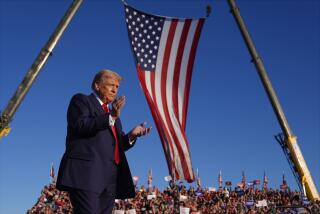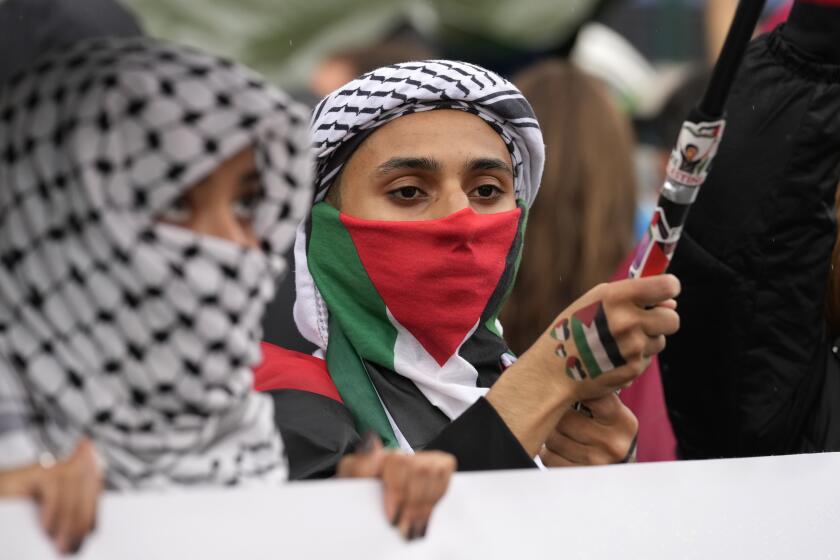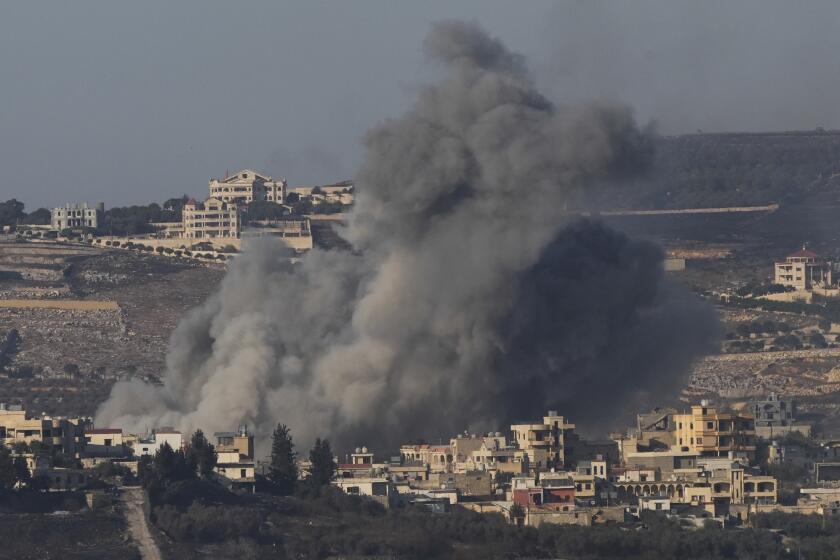Fighting mosques in the name of freedom
Last year, a Muslim congregation in Murfreesboro, Tenn., a pleasant college town of about 110,000 people southeast of Nashville, decided that the time had come to build a proper mosque.
For 20 years or more, the town’s roughly 250 Muslim families had met for prayers in makeshift quarters, and the congregation’s prosperous leaders — doctors, professors, auto dealers — thought they could do better. They bought a 15-acre plot of land next to a Baptist church south of the city limits, and won approval from the Rutherford County Planning Commission for a 53,000-square-foot community center.
Then, as has happened in several places around the country lately, bedlam broke out.
Conservative activists protested that they didn’t want a big, visible mosque in their quiet Southern town. A candidate for the Republican congressional nomination decried the construction. Vandals torched one of the (non-Muslim) contractor’s bulldozers. And a group of residents filed suit, charging that the building permit had been issued improperly and that they would suffer “emotional distress” if they had to live near a mosque.
What happened next was unexpected, but it was what should happen in a country where freedom of religion is enshrined in the Constitution: Most of Murfreesboro rallied around the Muslims. Christian clergymen and a rabbi formed a support committee; there were marches and teach-ins. The fiery congressional candidate lost her primary race.
Among the Islamic Center of Murfreesboro’s most important supporters was the elected mayor of Rutherford County, a Republican farmer and retired healthcare executive named Ernest G. Burgess. He’s also an elder at North Boulevard Church of Christ.
“This is going to sound a little philosophical, but this is a matter of principle,” Burgess told me this week. “When I took this office, I promised to uphold the constitutions of the United States and the state of Tennessee.... As far as I’m concerned, that’s the end of the story.”
Only it wasn’t.
In a move that could portend a shift away from mosque battles as strictly local fights, the anti-mosque forces consulted with national conservative groups to marshal arguments against the project. And they imported a Washington-based activist, former Reagan administration official Frank Gaffney Jr., to testify in court that American Muslims — including those in Murfreesboro — want to impose Sharia, or Islamic law, on the United States, and that the proposed mosque, gymnasium and swimming pool were part of a “stealth jihad.”
“I’m willing to take this case all the way to the Supreme Court if I have to,” said Joe Brandon Jr., the plaintiffs’ lawyer. “And I’m getting a lot of help. I didn’t know anything about Islam or Sharia when this started — I’m just a criminal lawyer — but I’ve learned a lot.”
In short, what began as a strictly local zoning case that looked open and shut — under federal law, religious congregations can build houses of worship almost anywhere — has become the focus of a battle that opponents would like to take national.
“I can’t help thinking that if this were just a local controversy, it would have been settled by now,” Mayor Burgess said last week.
Brandon, the plaintiffs’ lawyer, dismisses the idea of outside agitation, noting that national donations to pursue the case haven’t been pouring in. But he acknowledges that national groups such as Gaffney’s Center for Security Policy have helped him make his case.
Gaffney’s argument boils down to this: Devout Muslims want to live under Sharia, the religious legal code that governs in Saudi Arabia and other traditional Islamic societies. But Sharia, which treats women as unequal, is incompatible with U.S. law. So organized Islam, Gaffney charges, is conspiring to supplant American law with Muslim law — and that, he says, is sedition.
“What is going on in Murfreesboro … fits into the profile of the stealth jihad that is being waged by the Muslim Brotherhood,” he told me. “It’s a mega-mosque that’s clearly disproportionate to the community that it’s intended to serve. It has the purpose of demonstrating a kind of triumphalist agenda.”
Murfreesboro’s Muslims haven’t actually done anything explicitly seditious, he acknowledges, but “you want to err on the side of caution.”
It’s hard to see how the lawsuit against the Murfreesboro mosque can prevail. Even if Brandon wins his case, the most he can ask for is a rehearing on the building permit. Meanwhile, the Muslim congregation has actually sped up construction on the advice of its lawyers, who say that once the building is up, it will be harder to undo.
But it’s unlikely that even a resounding defeat in court will end attempts to stop mosque construction. In Gaffney’s view, the protests across the country are crucially important, “analogous to the Cold War and the struggle against communism.”
Newt Gingrich probably wouldn’t disagree; last year he called Sharia “a mortal threat to the survival of freedom in the United States.”
Gaffney has a point: Not since the communist scares of the Cold War have we heard that kind of rhetoric. Back then, plenty of politicians found it useful to run against sedition, both real and imagined. The Bill of Rights survived, but it certainly came under attack. Looks as if it’s in for another battle.
More to Read
Sign up for Essential California
The most important California stories and recommendations in your inbox every morning.
You may occasionally receive promotional content from the Los Angeles Times.











